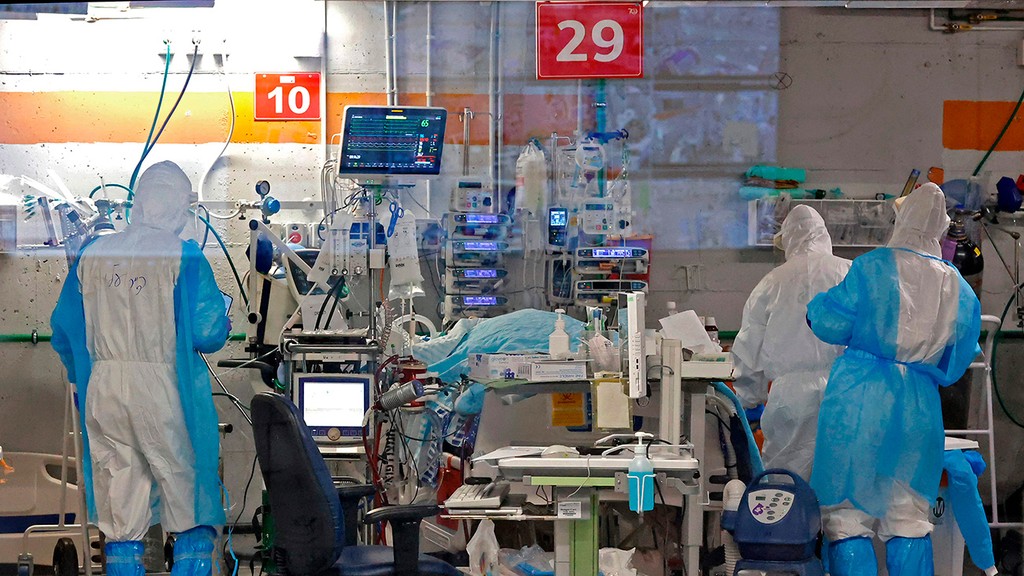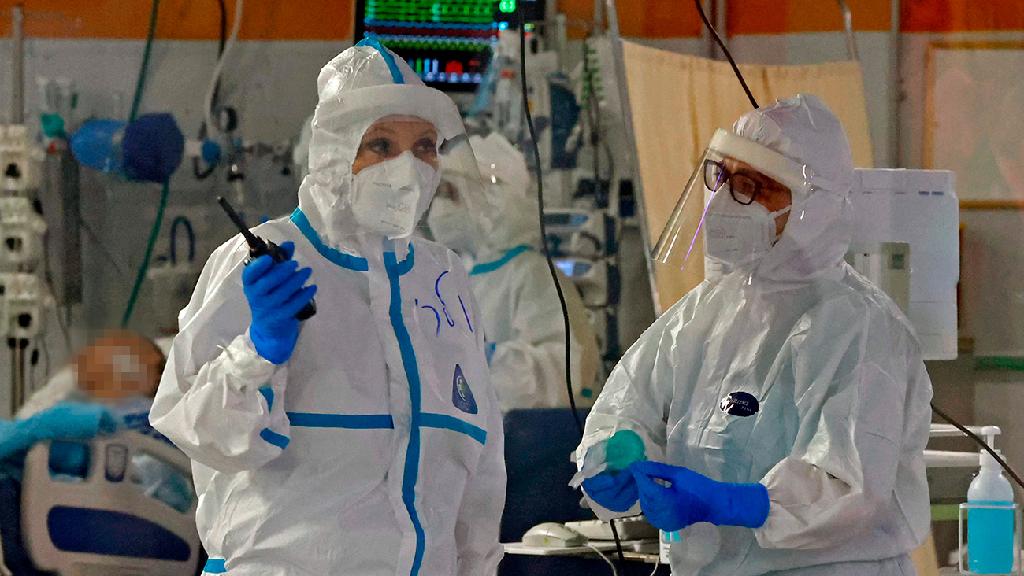The messaging from the front lines of the coronavirus crisis in the past few days has seemed schizophrenic.
On the one hand, we are being inundated with dire warnings and on the other are given reassuring slogans.
The number of seriously ill patients is on the rise, with more than 100 people on ventilators, as hospitals say they are filled beyond capacity and are having to move patients to other facilities.
At the same time, senior health officials, including Health Minister Yuli Edelstein, are busy broadcasting its business as usual.
The messaging from the newly appointed coronavirus czar, Professor Ronni Gamzu was clear: The pandemic is under control.
4 View gallery


Coronavirus czar Ronni Gamzu making a public address on Monday
(Photo: Jorge Novominsky)
"There is no need to worry about the rise in seriously ill COVID-19 patients because they are receiving the best care in the world," Gamzu said on Monday, adding that hospitals are able to care for hundreds more patients.
"They have space, manpower and resources needed," he assured the public.
But the facts behind this messaging tell a different and disturbing story.
Over the past week, an average of 10 people have died every day from the coronavirus. The number of seriously ill is also on the rise.
The hospitals' warning about the overload they are experiencing also reveals an increased use of ECMO machines as a last resort in treating critical heart and lung failure.
Patients in need of this treatment are dealt with on a first-come, first-served basis and every ECMO machine available is now in use.
Without this life-saving support, COVID-19 patients in critical condition may have no chance of survival.
But as with ventilators that were much reported on during the early days of the pandemic, the machines are not the problem. The issue is finding qualified medical teams to operate them.
Many of these highly trained professionals are quarantined. Others are overworked with no end to the crisis in sight, affecting the quality of care.
Overloading the medical system in order to avoid the need to impose lock-downs has come at a price.
A decision to increase the number of beds needed to treat COVID-19 patients means cutting back on other medical services and reducing the capacity in other hospital wards.
In light of all these challenges and the warning signs already seen, as well as the failure of measures to reduce the number of daily infections – the decision by the government to lift more measures imposed on the public is vexing.
By allowing the entrance of non-Israelis into the country, some of whom may be infected by the virus, hospitals would be put under unnecessary additional stress which could be the cause of more drastic measures in the near future.
Opening schools for in-person learning would almost certainly increase contagion.
Gamzu may claim hospitals are capable of treating many more COVID-19 cases but it would be at the expense of those not fortunate enough to be ill with the virus, who would now be cast aside because this government is prepared to push Israel's healthcare system to the very limit.




